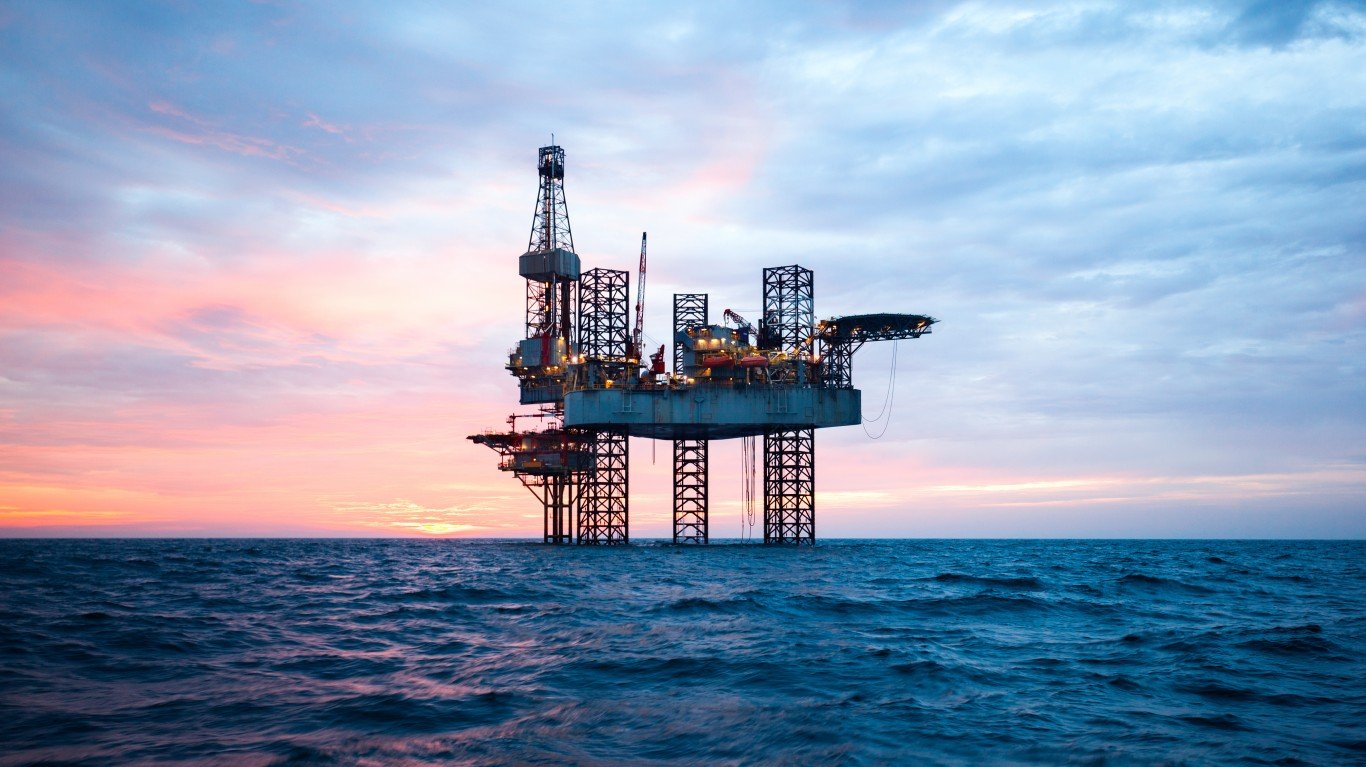

It’s not easy these days to find analysts who are upbeat about oil companies’ prospects over a period longer than a few months or a year. That’s not entirely due to volatility in the commodity markets for crude. At least as important is how major integrated oil companies plan to address the transition to cleaner energy sources.
In a report published Tuesday on Europe’s eight largest integrated oil companies, analysts at Deutsche Bank put it this way: “The days when an oil company’s worth was based on how credible a production growth story it could present are not long gone, but they are definitely gone.” Those days are gone because there is no longer any serious opposition to the warnings of climate scientists. Investors are demanding change, and governments have finally, if slowly, gotten on the de-carbonization train.
[in-text-ad]
But can the world reach a net-zero target by 2050? Deutsche Bank’s analysts are skeptical:
Given current country and company targets, this goal, whilst touted by many as underway in some form, looks totally unachievable, in our view; … net-zero by 2050 implies a 1.4 [billion metric ton per annum] fall in CO2 emissions. What does that mean in real terms? The answer is it is equivalent to closing 260 [gigawatts] worth of coal fired power stations each year (i.e. over 400 of them). Meanwhile, in the real world, China has 250 [gigawatts] of new coal power stations under construction or planned.
Of the eight European oil majors, Deutsche Bank on Tuesday initiated coverage on four: Eni SpA (NYSE: E), Royal Dutch Shell PLC (NYSE: RDS-B), Total S.A. (NYSE: TOT) and BP PLC (NYSE: BP).
Eni
Italy-based Eni scored a Buy rating from the Deutsche Bank analysts and a price target of €11.50 ($13.80). At a current price of around €10.1, the upside potential is 11%m and the analysts estimate a dividend yield of 7.53% for 2021, the highest of any of these four stocks.
Eni ranks near the bottom of the bank’s scorecard due to its heavy reliance for profits on high-carbon oil. But Eni has committed to a net-zero target by 2050, including the so-called Scope 3 requirement for zero emissions from the products it sells.
Deutsche Bank forecasts that 2021 coverage of dividends and buybacks are twice the bank’s forecast free cash flow with oil priced at $65.80 a barrel. The analysts also are encouraged by Eni’s hopes to spin-off or sell its renewables and retail business, commenting that “this would shine a welcome light on the true value of an implicitly undervalued part of its operations.”
Eni traded Wednesday at around $24.56, in a 52-week range of $13.36 to $25.23, with a consensus price target of $22.00. The company pays a dividend of $0.56 (yield of 2.29%).
Total
Deutsche Bank’s analysts settled a Buy rating on Paris-based Total, as well as a price target of €46.60 ($55.94), implying an upside of 23% to a recent price of around $44.60. Deutsche Bank estimates a 2021 dividend yield of 7.1%, second only to Eni’s projected yield.
Total’s growing liquefied natural gas (LNG) business, strong balance sheet, safer dividend and return on average capital employed of 10.6% is higher than any of the other three stocks in this review. Gearing of 25% is below the European average of 28%, and gives Total “low carbon investment optionality and underscores Total’s relative dividend security.”
Thank you for reading! Have some feedback for us?
Contact the 24/7 Wall St. editorial team.
 24/7 Wall St.
24/7 Wall St.

